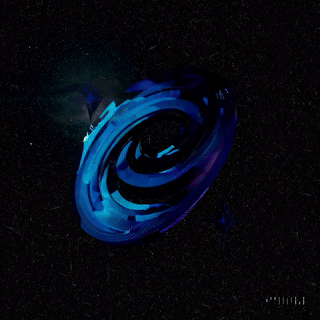Moksha is the concept of emancipation, liberation, and release from the cycle of Samsara or repeated rebirth. Mukti, vimosha, and vimukti are all interchangeable words that mean emancipation, freedom, self-knowledge, and self-realization. In the Upanishads, it refers to this release with the same word used to release horses from their carriage, but each school of yoga describes a different origin of Moksha and method for achieving it.
Moksha is a word that is similar to Nirvana, but Nirvana tends to be a buddhist concept while Moksha is Hindu; Nirvana means “blown-out” or perfect stillness of the mind. However, in both religions, this is a release from the endless cycles of samsara or the infinite cycles of rebirth. Samsara is seen as a cycle of suffering, pain, injury, death, and bondage, so release from this is the ultimate goal of an individual’s life, in combination with the four other purusarthas, or objective human pursuits. There are two different schools of thought as to how Moksha is obtained: on earth (Jiva Mukti), as an ultimate destiny, or only through concrete, ethical actions in the world. Moksha is a transformation of knowledge that allows an individual to see beyond the fog of ignorance.
The state itself is described as a oneness with Brahman, or the universal god energy that fuels the universe bringing absolute peace, bliss, and a state of knowledge. One of the written ways of achieving this is through meditating on Brahman, or universal “god” at the core of the being that is liberated. In essence, Moksha is liberation into the core essence of the energy of the universe, while relinquishing the sufferings of consciousness.
Jivan muktis, or self-realized humans are said to have the following attributes in the Upanishads (keep in mind these are guidelines and in the tradition, there have been many jivan muktis):
- not bothered by disrespect and endures cruel words, treats others with respect regardless of how others treat him;
- when confronted by an angry person does not return anger, instead replies with soft and kind words;
- even if tortured, speaks and trusts the truth;
- does not crave for blessings or expect praise from others;
- never injures or harms any life or being (ahimsa), is intent in the welfare of all beings;[87]
- is as comfortable being alone as in the presence of others;
- is as comfortable with a bowl, at the foot of a tree in tattered robe without help, as when in a mithuna (union of mendicants), grama (village) and nagara (city);
- doesn’t care about or wear sikha (tuft of hair on the back of head for religious reasons), nor the holy thread across the body. To the Jivan Mukti knowledge is sikha, knowledge is the holy thread, knowledge alone is supreme. Outer appearances and rituals do not matter, only knowledge matters;
- there is no invocation nor dismissal of deities, no mantra nor non-mantra, no prostrations nor worship of gods, goddess or ancestors, nothing other than knowledge of Self;
- humble, high-spirited, of clear and steady mind, straightforward, compassionate, patient, indifferent, courageous, speaks firmly and with sweet words.
So you can see that there is an idea of what a Jivan Mukti is supposed to be: a teacher, a sage, a mentor, a guide on the path of Dharma.The Jivan Mukti is not only a friend for everyone, the Mukti strives for the liberation of all beings. The Mukti no longer lives for their self, but for others.

1 thought on “Moksha | मोक्ष”